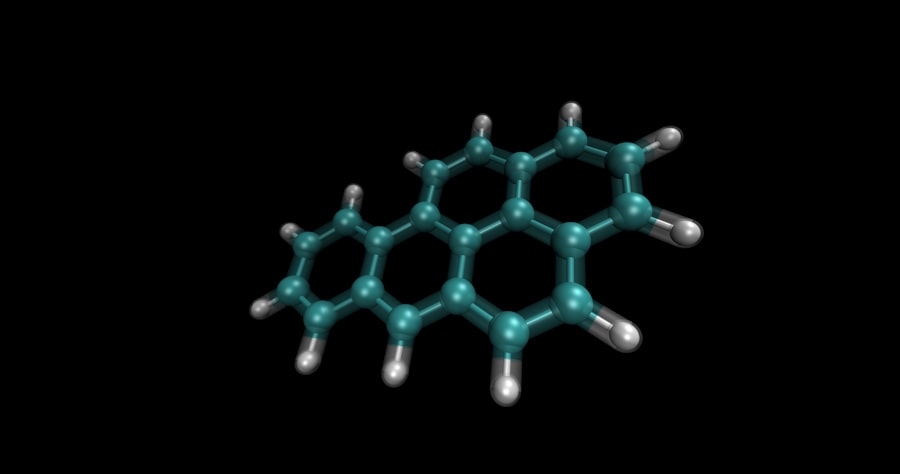Norepinephrine, a neurotransmitter and hormone, plays a pivotal role in your body’s response to stress and various physiological functions. It is produced in the adrenal glands and the locus coeruleus in the brain, acting as a chemical messenger that influences numerous systems within your body. As you navigate through daily life, norepinephrine helps regulate your mood, attention, and even your cardiovascular health.
Understanding this neurotransmitter is essential for grasping how your body reacts to stress and how it can affect your overall well-being. In recent years, research has increasingly focused on norepinephrine due to its significant implications for mental health and physical performance. You may not realize it, but this neurotransmitter is intricately linked to your ability to respond to challenges, both mentally and physically.
By delving into the complexities of norepinephrine, you can gain insights into how it shapes your experiences and responses to stressors in your life.
Key Takeaways
- Norepinephrine is a neurotransmitter that plays a key role in the body’s stress response and is involved in the fight or flight reaction.
- Norepinephrine affects heart rate, blood pressure, and the autonomic nervous system, leading to increased alertness and focus during stressful situations.
- In the brain, norepinephrine influences mood, emotion, and attention, and is linked to anxiety disorders and post-traumatic stress disorder.
- Understanding the role of norepinephrine in stress management can lead to potential interventions and treatments for stress-related conditions.
- Overall, norepinephrine has a significant impact on the body’s physiological and psychological response to stress, making it an important target for stress management strategies.
The Physiology of Stress Response
When you encounter a stressful situation, your body initiates a series of physiological changes known as the stress response. This process begins in the hypothalamus, which signals the adrenal glands to release hormones such as adrenaline and norepinephrine. These hormones prepare you for immediate action, often referred to as the “fight or flight” response.
Your heart rate increases, blood vessels constrict, and energy is mobilized from reserves, all designed to equip you for survival. As you experience stress, norepinephrine plays a crucial role in heightening your awareness and focus. It enhances your ability to react quickly to threats by increasing blood flow to essential organs and muscles.
This physiological response is not just about survival; it also influences how you perceive and interact with the world around you. Understanding this process can help you recognize how stress affects your body and mind, allowing you to develop strategies for managing it more effectively.
Norepinephrine’s Role in Fight or Flight Response

The fight or flight response is a fundamental survival mechanism that has evolved over millions of years. When faced with danger, norepinephrine acts as a catalyst for rapid physiological changes that prepare you to either confront the threat or flee from it. This neurotransmitter enhances alertness and arousal, sharpening your senses and enabling you to react swiftly.
You may notice that during stressful situations, your heart races, your breathing quickens, and your muscles tense up—all orchestrated by the release of norepinephrine. Moreover, norepinephrine’s influence extends beyond mere physical readiness; it also affects your cognitive functions. In moments of acute stress, this neurotransmitter can enhance memory formation related to the stressful event, ensuring that you learn from the experience.
This dual role of norepinephrine—preparing your body for action while simultaneously sharpening your mind—illustrates its critical importance in navigating life’s challenges.
Norepinephrine and the Brain
| Aspect | Information |
|---|---|
| Function | Norepinephrine is a neurotransmitter that plays a role in attention, focus, and arousal. |
| Effects | It can increase heart rate, trigger the release of glucose from energy stores, and increase blood flow to skeletal muscle. |
| Regulation | Its levels are regulated by the locus coeruleus in the brainstem. |
| Implications | Imbalances in norepinephrine levels have been linked to conditions such as depression, anxiety, and attention deficit hyperactivity disorder (ADHD). |
Norepinephrine’s impact on the brain is profound and multifaceted. It is primarily produced in the locus coeruleus, a small nucleus located in the brainstem that plays a vital role in arousal and alertness. When norepinephrine is released into various brain regions, it modulates attention, learning, and memory processes.
This neurotransmitter helps you focus on relevant stimuli while filtering out distractions, which is particularly important in high-pressure situations. Additionally, norepinephrine interacts with other neurotransmitters such as dopamine and serotonin, creating a complex network that influences mood and behavior. This interplay can affect how you experience emotions and respond to different situations.
For instance, an imbalance in norepinephrine levels may contribute to conditions such as depression or anxiety, highlighting the importance of maintaining healthy levels of this neurotransmitter for optimal brain function.
The Role of Norepinephrine in Mood and Emotion
Your emotional state is intricately linked to the levels of norepinephrine in your brain. This neurotransmitter plays a significant role in regulating mood by influencing various neural pathways associated with feelings of pleasure and reward. When norepinephrine levels are balanced, you may feel energized and motivated; however, fluctuations can lead to emotional disturbances.
For example, low levels of norepinephrine have been associated with symptoms of depression, while elevated levels can contribute to heightened anxiety. Understanding the relationship between norepinephrine and mood can empower you to take proactive steps toward emotional well-being. Engaging in activities that promote healthy norepinephrine levels—such as regular exercise, adequate sleep, and stress management techniques—can help stabilize your mood and enhance your overall emotional resilience.
Norepinephrine’s Impact on Heart Rate and Blood Pressure

Norepinephrine has a direct influence on cardiovascular health by regulating heart rate and blood pressure. When released during stressful situations, it causes blood vessels to constrict, which increases blood pressure and redirects blood flow to vital organs and muscles. This response is essential for preparing your body for immediate action but can become problematic if activated too frequently or for prolonged periods.
By recognizing the impact of norepinephrine on your heart health, you can take steps to manage stress effectively. Techniques such as mindfulness meditation, deep breathing exercises, and physical activity can help mitigate the effects of chronic stress on your cardiovascular system.
Norepinephrine and the Autonomic Nervous System
The autonomic nervous system (ANS) regulates involuntary bodily functions such as heart rate, digestion, and respiratory rate. Norepinephrine plays a crucial role in the sympathetic branch of the ANS, which is responsible for activating the body’s fight or flight response during stressful situations. When faced with a threat, norepinephrine signals various organs to prepare for action—your heart beats faster, your pupils dilate, and digestion slows down.
Conversely, when the threat has passed, the parasympathetic branch of the ANS takes over to restore balance and promote relaxation. Understanding how norepinephrine interacts with the ANS can help you appreciate the importance of managing stress effectively. By employing relaxation techniques or engaging in activities that promote calmness, you can help regulate norepinephrine levels and support a healthier balance within your autonomic nervous system.
Norepinephrine’s Influence on Attention and Focus
Norepinephrine is essential for maintaining attention and focus, particularly in challenging or demanding situations. When you encounter tasks that require concentration or quick decision-making, norepinephrine enhances your cognitive abilities by increasing alertness and facilitating information processing. This neurotransmitter helps you prioritize relevant information while filtering out distractions, allowing you to perform at your best.
However, an excess of norepinephrine can lead to hyperarousal or difficulty concentrating due to overwhelming stimuli. Striking a balance is crucial for optimal cognitive performance. Techniques such as mindfulness practices or structured breaks during intense work sessions can help regulate norepinephrine levels, allowing you to maintain focus without becoming overwhelmed.
The Connection Between Norepinephrine and Anxiety Disorders
Anxiety disorders are characterized by excessive fear or worry that can significantly impact daily functioning. Research has shown that dysregulation of norepinephrine may play a role in these conditions. Elevated levels of norepinephrine can lead to heightened arousal and increased sensitivity to perceived threats, contributing to anxiety symptoms such as restlessness or racing thoughts.
Understanding this connection can empower you to seek appropriate interventions for managing anxiety. Therapeutic approaches such as cognitive-behavioral therapy (CBT) or medication targeting norepinephrine reuptake may help restore balance and alleviate symptoms. By addressing the underlying neurochemical factors contributing to anxiety disorders, you can work toward achieving greater emotional stability.
Norepinephrine’s Role in Post-Traumatic Stress Disorder
Post-traumatic stress disorder (PTSD) is a complex condition that can arise after experiencing or witnessing traumatic events. Norepinephrine is implicated in PTSD due to its role in memory consolidation related to traumatic experiences.
Recognizing the role of norepinephrine in PTSD can inform treatment approaches aimed at reducing symptoms and promoting healing. Therapeutic interventions may include exposure therapy or medications that target norepinephrine pathways to help individuals process traumatic memories more effectively. By understanding how norepinephrine contributes to PTSD symptoms, you can better navigate the path toward recovery.
Implications for Norepinephrine in Stress Management
In conclusion, norepinephrine is a vital neurotransmitter that influences various aspects of your physical and mental health. Its role in the stress response highlights its importance in preparing your body for action while also affecting mood, attention, and cardiovascular function. By understanding how norepinephrine operates within your body, you can take proactive steps toward managing stress more effectively.
Implementing strategies such as regular exercise, mindfulness practices, and healthy lifestyle choices can help regulate norepinephrine levels and promote overall well-being. As you navigate life’s challenges, recognizing the significance of this neurotransmitter empowers you to cultivate resilience and maintain balance in both your mind and body. Embracing these insights can lead to improved stress management techniques that enhance your quality of life.
Norepinephrine, a crucial neurotransmitter in the brain, plays a significant role in regulating mood, attention, and stress responses. It is often discussed in the context of its impact on mental health and its involvement in various psychological disorders. For a deeper understanding of how norepinephrine functions within the broader scope of psychological processes, you might find the article on Unplugged Psych insightful. This resource delves into the intricate workings of neurotransmitters and their influence on behavior and mental health, providing a comprehensive overview that complements the study of norepinephrine.
WATCH THIS! Is This Hidden ADHD Sign Quietly Wrecking Your Sleep and Draining Your Energy?
FAQs
What is norepinephrine?
Norepinephrine is a hormone and neurotransmitter that is released by the adrenal glands and also acts as a neurotransmitter in the brain. It is involved in the body’s “fight or flight” response and plays a role in regulating blood pressure, heart rate, and the release of glucose.
What are the functions of norepinephrine?
Norepinephrine has several important functions in the body, including increasing heart rate and blood pressure, triggering the release of glucose from energy stores, and increasing blood flow to muscles. It also plays a role in attention, arousal, and mood regulation in the brain.
How is norepinephrine related to stress and anxiety?
Norepinephrine is released in response to stress and is involved in the body’s physiological response to perceived threats. It can increase alertness and arousal, and is associated with the “fight or flight” response. Dysregulation of norepinephrine levels has been linked to anxiety disorders.
What are the medical uses of norepinephrine?
Norepinephrine is used as a medication to treat low blood pressure and shock, as it can increase blood pressure and improve blood flow to vital organs. It is also used in the treatment of attention deficit hyperactivity disorder (ADHD) and depression.
What are the potential side effects of norepinephrine?
Common side effects of norepinephrine can include increased heart rate, elevated blood pressure, anxiety, and difficulty sleeping. In some cases, it can also cause headaches, dizziness, and nausea. It is important to use norepinephrine under the supervision of a healthcare professional.




